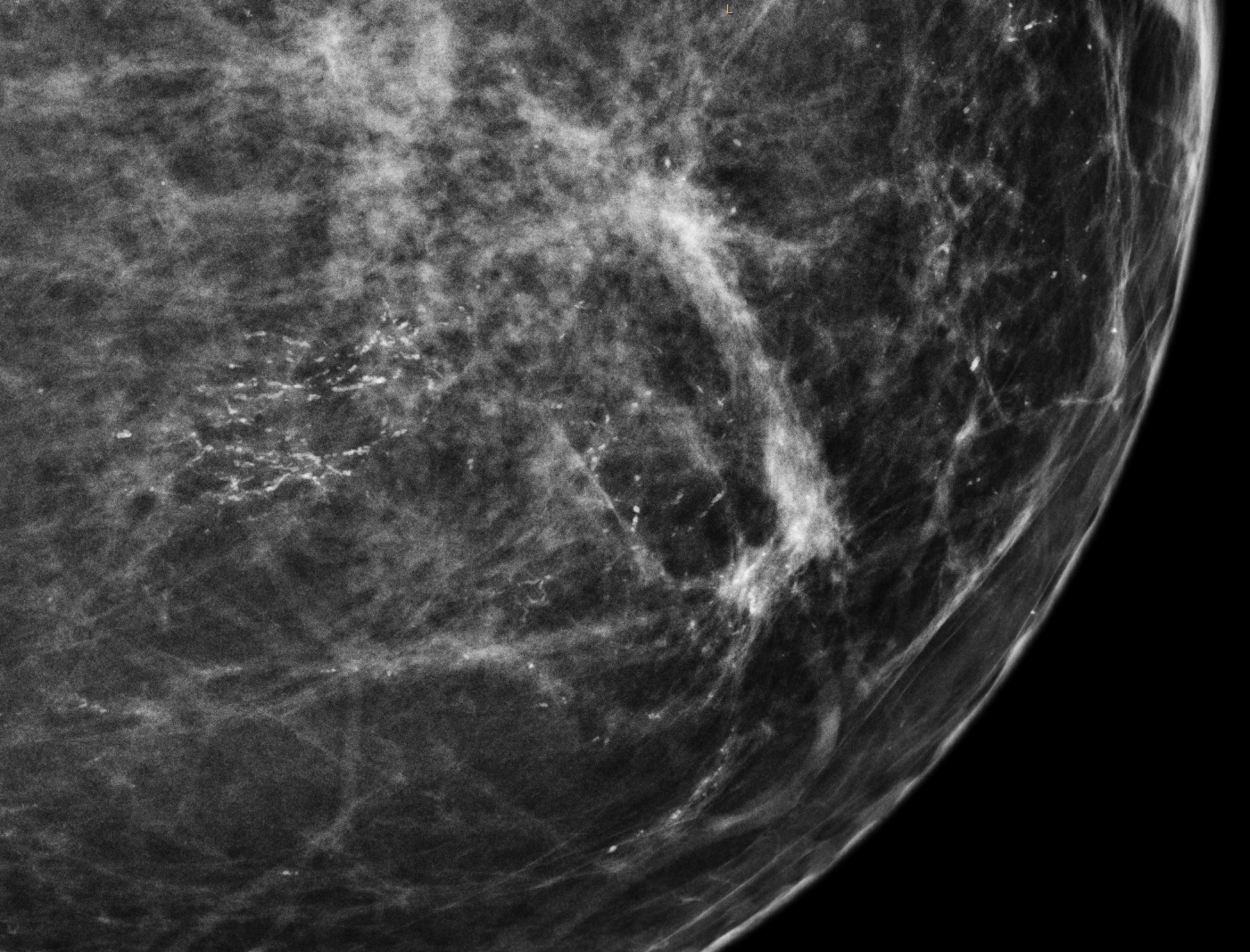Have you ever had a mammogram and received the report from your radiologist with the words “dense breast tissue” written in the summary? If you were confused by this, you’re not alone.
Dense breast tissue is a significant risk factor for breast cancer. So much so that many states, including California, now require that all women who have dense breasts be informed of this either by letter or on their mammogram report.
In fact, dense breast tissue has been associated with up to four times the risk for breast cancer yet, according to a new study, few women actually view breast density as a significant risk factor.
The study, published in JAMA Network Open (Perceptions of Breast Cancer Risks Among Women Receiving Mammograph Screening | Breast Cancer | JAMA Network Open | JAMA Network) surveyed women who had recently had mammograms. The women had heard of the term “breast density,” and were asked to compare the risks of breast density for cancer to five other known risk factors: having a first-degree relative with breast cancer, being overweight or obese, drinking more than one alcoholic beverage per day, never having children, and having a prior breast biopsy.
When compared to the other well known risk factors, the women surveyed did not perceive breast density as significant. In fact, the risk factor associated with having dense breasts can be as much as twice as high as the risk associated with having a first-degree relative with breast cancer. However, 93% of the women surveyed believed breast density was a lesser risk.
With all of that being said, let’s take a look at everything you need to know about breast density and what screening methods, in addition to mammography, can increase your chance of early detection.
What is Breast Density?
Breasts consist of three types of tissue: fatty, connective, and glandular. Fatty tissue is made up of fat cells. Connective tissue is made up of fibrous cells that provide shape and support. Glandular tissue is made up of milk glands and milk ducts. Breasts that contain more connective and glandular tissue than fatty tissue are considered dense.
It is a misconception that if a woman’s breasts feel firm, they must be dense. The only way to tell if you have dense breasts is with a mammogram. After examining the image, your radiologist will fit you into one of four categories, according to your breast density.
- Mostly Fatty Tissue.
- Scattered Fibroglandular Tissue
- Heterogeneously Dense
- Extremely Dense. (Breasts consist of over 75 percent glandular and connective tissue)
Why Do Some Women Have Dense Breasts?
Breast density is influenced by a number of factors. These things include:
- Age. Younger women are more likely to have dense breasts and breast density tends to decline with age.
- Genetics. Research indicates that women whose mothers had dense breasts are more likely to have dense breasts themselves.
- Weight. Women who are low to normal weight are more likely to have dense breasts than women who are overweight or obese.
- Hormone Therapy. Women using hormone replacement therapy or hormonal contraceptives, such as the birth control pill, are more likely to have dense breasts.
- Children. Women who become pregnant before age 24, breastfeed, and have three or more children are less likely to have dense breasts.
- Medication. Women being treated with hormone medication such as tamoxifen (used to prevent breast cancer) are less likely to have dense breasts.
Why is Breast Density a Risk Factor for Breast Cancer?
At this time, experts aren’t entirely sure why dense breast tissue is linked to a higher risk for breast cancer. It may be that dense breast tissue has more cells and the presence of more cells can allow for them to develop into abnormal cells.
Another hypothesis is that women who have dense breast tissue also have greater levels of estrogen, which contributes to both the breast density and to the risk of developing breast cancer.
Dense breast tissue also makes it difficult to detect cancer using traditional mammography alone. On a mammogram, dense breast tissue appears white – but so do breast masses and cancers. In contrast, cancers are easier to detect in non-dense breasts because fatty tissue appears black on a mammogram, so the white cancer stands out like a light bulb against a black background.
“Dense breasts are a common mammographic finding,” says Dr. Valentina Bonev, a board certified fellowship-trained breast surgical oncologist and high risk breast cancer specialist at Breastlink in Orange County. “Increased breast density can potentially mask malignant disease and supplemental imaging is often recommended.”
What are Other Screening Methods for Dense Breasts?
Mammogram is still the most reliable exam for initial detection and screening for breast cancer. According to experts, screening mammography remains the best examination for early detection of breast malignancy in ALL women. However, for women who have particularly dense breasts, a physician may also choose to order a supplemental screening exam.
Other screening exams, which can be used in addition to mammography (and not instead of) include the following:
- Breast Ultrasound. Breast ultrasound can be helpful as a supplemental screening tool in certain women.
- Breast MRI. Breast MRI uses magnetic fields and radio waves to create a detailed cross-section of a woman’s breast tissue without the use of radiation. MRI has historically been reserved for women with a combination of risk factors, such as dense breasts and a very strong family history of breast cancer, and/or a known genetic mutation, such as BRCA1 or BRCA2. However, a recent study showed that Breast MRI was a superior supplemental screening method for women at average risk for breast cancer who have dense breasts. (Supplemental Breast Cancer Screening in Women with Dense Breasts and Negative Mammography: A Systematic Review and Meta-Analysis | Radiology (rsna.org))
It’s important to remember that both of these screening tools are not replacements for mammography. They should be used in conjunction with mammogram.
Dr. Bonev says that “every woman should have an individualized screening plan for breast cancer.” If you have concerns about breast density, it's important that you speak with your physician about the best options for your health. Dr. Bonev advises, “ask your doctor if you have dense breasts and if you need supplemental screening.”




Add new comment